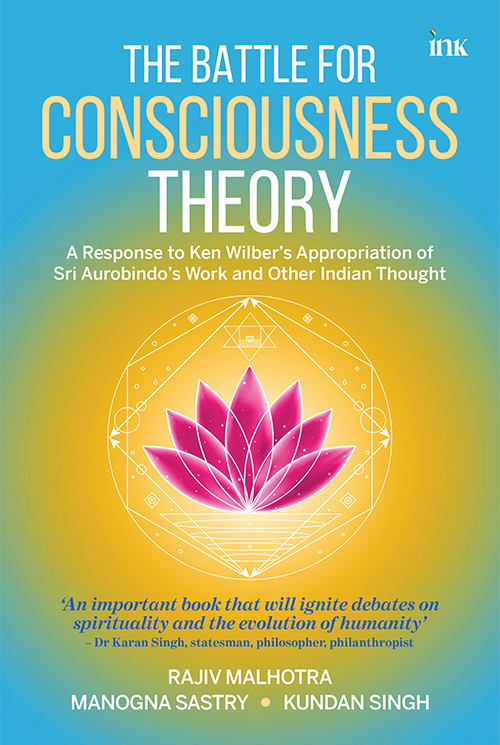The Battle for Consciousness Theory
The Battle for Consciousness Theory: A Response to Ken Wilber’s Appropriation of Sri Aurobindo’s Work and Other Indian Thought is a compelling and meticulous account of the digestion and subversion of the work of one of India’s greatest sages—Sri Aurobindo. The book uncovers the systematic co-opting of Sri Aurobindo’s seminal ideas by the American theorist Ken Wilber and their reformulation into his own ‘Integral Theory’. Based on extensive research spanning a quarter century, the book provides deep insights into the developments that shaped (and distorted) the Aurobindonian discourse in recent decades. It discusses the ramifications of the enhancement of Western Universalism at the expense of Vedic and other Indian traditions while analyzing certain limitations in Wilber’s work.


